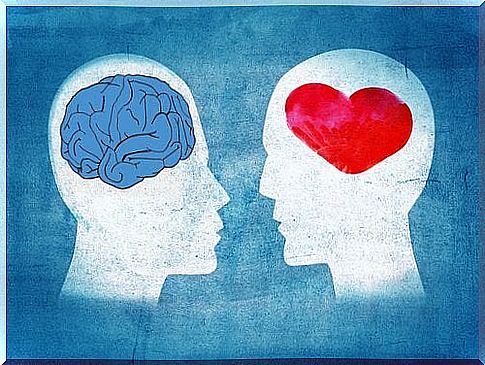Coping Strategies: What Distinguishes Them?

People tend to use different strategies to deal with problems. These strategies are also known as coping strategies. These mechanisms are used consciously or involuntarily. In both cases, they help us to cope with the demands and conflicts in our lives.
Based on our experience and our knowledge, each of us has developed our own method of dealing with challenges or situations. We also take different approaches to successfully overcome obstacles arising from these challenges. These coping strategies are important because the richer and more diverse they are, the easier it will be for us to remove difficulties and obstacles from our path.
“Emotions are the result of a process of cognitive assessment of a situation, coping strategies and the consequences of using those coping strategies.”
Lazarus and Folkman, 1986
Lazarus’ explanation
When situational challenges arise (e.g. a strenuous project at work that is likely to take longer), we need to respond in such a way that we can adapt to the situation. In other words, we need to use a coping strategy in order to take the hurdle.

For example, when we find ourselves in a situation that causes stress or anxiety, we use certain coping mechanisms to avoid panic. That is why Richard Lazarus believed that stress was the result of a process of adaptation to the environment. Without such adjustment, we simply could not survive.
Positive and negative use of coping strategies
When faced with an unexpected situation, there are two options for us: The first is to follow our coping strategies that will allow us to get through the situation. In this case, we adapt to the circumstances and can therefore use our resources effectively. However, there is a second scenario that can also become a reality. In this scenario, the situation demands more than we can give and handle.
Coping strategies allow us to adapt to different situations and our surroundings.
In this case, we see an imbalance between what it takes to solve the problem and the skills or talents we can use to deal with the conflict. Such situations, which are very demanding of us, can have physiological and psychological consequences.
First of all, there is the physiological response of our body. This reaction includes an increased heart rate, an increase in blood pressure, and cold sweats or hot flashes. On the other hand, an emotional reaction can occur. Symptoms of the emotional response include anger, stress, anxiety, and depression.

Double rating
Let’s imagine that our partner tells us that he has to travel abroad for professional reasons. First, according to Richard Lazarus, we would make a primary assessment of the situation. That is, we would analyze whether this event is positive or negative. We would also try to understand the consequences of the event and how it could affect us.
We would do a second assessment later. In making this assessment, we would not focus on the event itself, but on ourselves. At this point , we would be thinking about the skills or tools we would need to face this situation or new reality. That is, we would mentally go through all of our coping strategies and choose a suitable one. Based on this final assessment, we would manage emerging stress.
Types of coping strategies
Strategies looking for solutions
The coping strategy we choose should help us face the situation. It is based on the search for solutions to restore our cognitive balance. It helps to find a solution or to change the situation and sometimes refers to confrontation and the search for social support.
We usually use a coping strategy when we consider the stressful event manageable. Suppose we have a lot of tasks to do in one day. This creates discomfort and stress in our lives. How do we adapt to this situation? If we employ the right coping mechanisms, we will be able to cope with our tasks without any problems. And if not?
Strategies that focus on emotions
Unlike other coping strategies, we usually use emotion-based strategies when the situation is so stressful that we seem to be losing control. We then try not to focus on the problem anymore, but on the emotions it evokes. Only when we have regulated our emotions again can we finally relax. These strategies are designed to restore our emotional balance.

These strategies include self-control, distancing, positive reassessment, self-incrimination, and escape / avoidance. However, coping strategies based on escape and avoidance are only temporarily productive. In choosing this strategy, we try to push our problems out of the way through a different type of activity. We want to move away from the source of stress as much as possible. However, once this activity is over, we must face the situation again.
We don’t need to be strict about coping strategies. You are just as flexible as we are. With appropriate advice and psychological support, we can use them to successfully cope with our stress, even if it threatens to overwhelm us.









